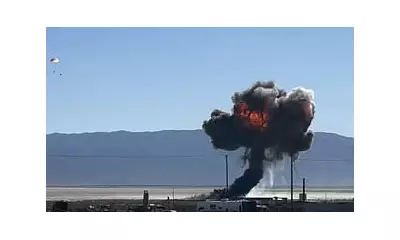
In a move that has ignited fierce debate, the Biden administration has given the green light to resume significant weapons shipments to allied countries despite an ongoing government shutdown that has paralysed much of Washington's normal operations.
Controversial Decision Amid Political Deadlock
The resumption of arms transfers comes as hundreds of thousands of federal employees face furloughs and critical government services grind to a halt. Critics argue that proceeding with major defence exports during such a period raises serious questions about transparency and proper oversight.
According to official notifications, the State Department has authorised multiple arms packages worth hundreds of millions of dollars to key allies including Saudi Arabia, the United Arab Emirates, and Israel. The decision underscores the administration's determination to maintain strategic partnerships even as domestic governance faces unprecedented challenges.
Oversight Concerns Mount
With congressional committees largely inactive due to the shutdown and many oversight mechanisms suspended, watchdog groups have expressed alarm about the timing of these decisions. The lack of proper scrutiny during such sensitive transactions could have far-reaching implications for both national security and human rights considerations.
"This creates a dangerous precedent where major policy decisions can proceed without the normal checks and balances," noted one defence policy expert speaking on condition of anonymity.
Economic and Strategic Implications
The move also highlights the complex interplay between economic pressures and foreign policy objectives. Defence contractors, facing potential disruptions from the shutdown, will welcome the continuity of export approvals that sustain production lines and protect jobs across multiple states.
However, the resumption of weapons sales to certain controversial partners is likely to face renewed scrutiny once normal government operations resume. The administration maintains that these transfers are essential for regional stability and supporting key allies in volatile security environments.
As the shutdown continues with no immediate resolution in sight, the controversy surrounding these weapons transfers serves as a stark reminder of how critical government functions can become entangled in broader political battles, with potentially significant consequences for both domestic accountability and international relations.





